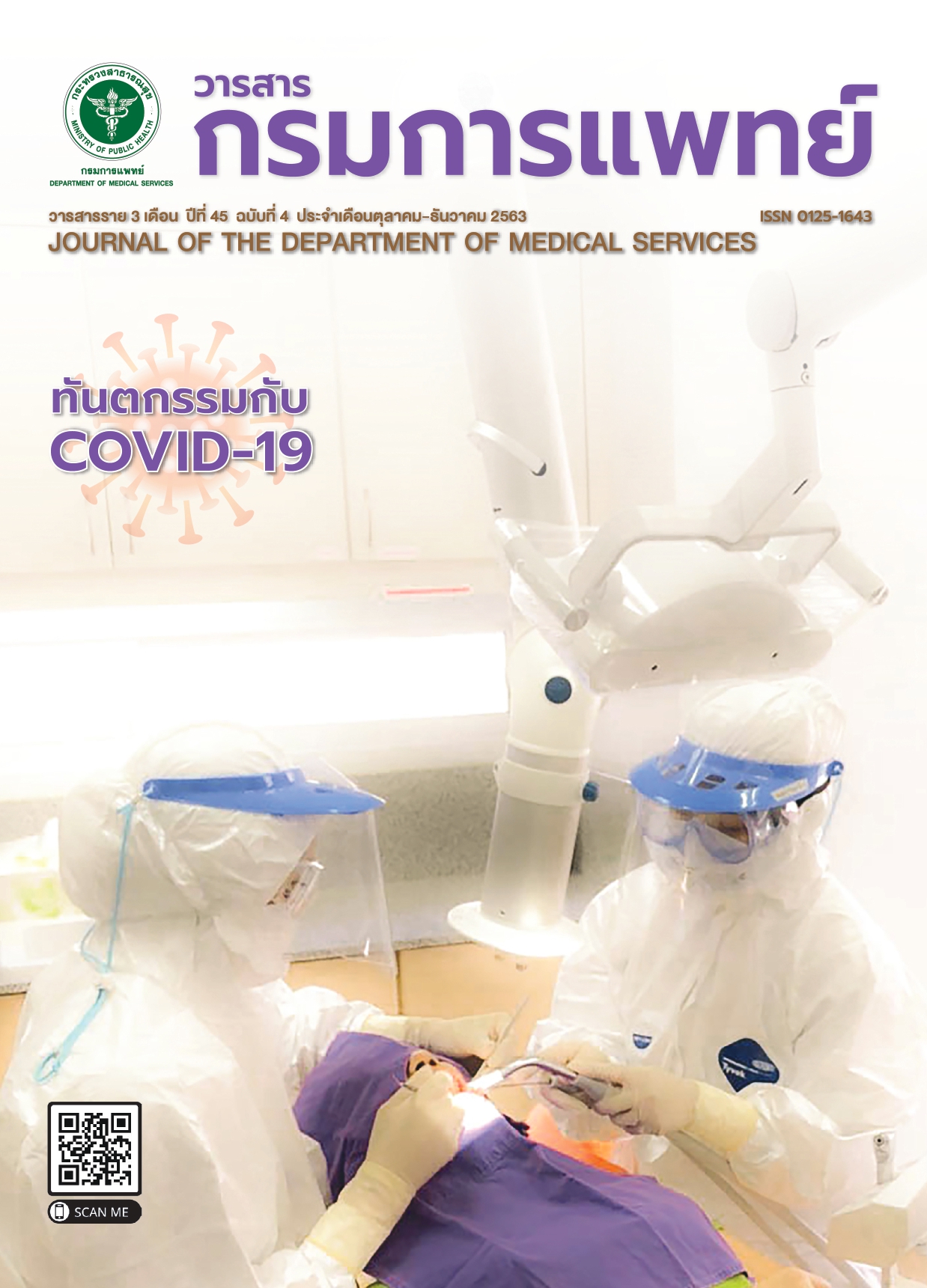The Development of Rehabilitation System for Methamphetamine Abuser: The Foster Families Model
Keywords:
System development, Foster families, Methamphetamine abusers, Rehabilitation systemAbstract
Background : Relapse after recovery period is still be the problem of methamphetamine abusers. The foster family model is one of the model for relapse prevention among methamphetamine abusers. Methamphetamine abusers will be fostered by volunteer family to be the family members and learn how to live in real community and prepare themselves before rejoining with their own societies without substance use.
Objectives : 1) developing of rehabilitation system based on the family foster model for relapse prevention among methamphetamine abusers, 2) study different of mean scores of caring skills of foster family and self-care of methamphetamine abusers between before and after implement the rehabilitation system that develop by researcher team 3) study relapse rate of subjects after 1-month and 3-month finishing rehabilitation system and4) study satisfaction of subjects finishing rehabilitation system.
Method : This study was a research and development study. There process of system development were 1) systems investigation, 2) systems analysis, 3) system design, 4) systems implementation and 5) systems maintenance and review. Participants consisted of 15 committees of villages, 20 members of foster families, 28 methamphetamine abusers, 10 real family members of methamphetamine abusers and 16 staffs of Thanyarak ChiangMai Hospital. Instruments used in this study were 1) semi-structured questions for group discussion, 2) meeting records and group discussion records, 3) questionnaire for caring methamphetamine abusers by foster families, 4) questionnaire for self-care of methamphetamine abusers, 5) self-care survey by patients and official government aftercare form for methamphetamine use disorder treatment 6) semi-structured interview for satisfaction of foster families who used rehabilitation system for relapse prevention. Data was analyzed by content analysis and Wilcoxon Sign-Rank test.
Results : The rehabilitation system for relapse prevention among methamphetamine abusers, the family foster model was developed. The new system was structured and role of participants was identified. Mean scores of skills on caring methamphetamine abusers by foster families and mean score of self-care of methamphetamine abusers was significantly different between before and after finishing new system implementation (p<.05). Only 11 form 16 methamphetamine abusers can follow for relapse rate, 7 have no relapse at 1-month follow-up, and 10 have no relapse at 3-month follow-up. System users were satisfied with the new system and reported of helpful, structured and role of participants was identified clearly.
Conclusion :The rehabilitation system for relapse prevention among methamphetamine abusers, the family foster model is helpful and can possibly integrate in the health system as an optional relapse prevention for methamphetamine abusers especially in compulsory treatment for substance abuse system in Thailand.
References
Narcotics Control Management Center, Ministry of Public Health [Internet]. [cited 2017 June 8]. Available from: https://www.facebook.com/fanmoph/posts/
Chompukam P, Nilbun S, Suwanmajo S. Substance addict treatment at “Thanyarak Institute” (2000-2010).Bulletin of the Department of Medical Services 2012; 2: 90-9.
Polngam I, Polsongkram W, Poolpipat S, Somsri S, nganpanya J. Evaluation Research of Rehabilitation Model Development for Compulsory Drug Addict. Khon Kaen Rehabilitation Center;2010.
Rungsiwaroj N, Tejafong K, Supreeda B, Thongtos B, Chainonthee A, Jaija R. The development of a community and civil society participation model for drug dependence rehabilitation. Chiangmai rehabilitation center.Thanyarak Institute department of medical services ministry of public health;2008.
Office of the Council of State. Child Protection Act, B.E.2546 (2003). [Internet]. [cited 2017 June 12]. Available from:http://www.krisdika.go.th/data/law/law2/%A493/%A493-20-2546-a0001.htm
Child Welfare League of America. Child Welfare League of America Statement on foster care services. Child Welfare.1979; 58: 49 - 50.
Stroud J, editor. “Residential care” Services for children and their Families: Aspects of Child – Care for Social Workers. Oxford: Pergamon Press; 1973.
Rungsiwaroj N, Tejafong K. The evaluation of the development of a community and civil society participation model for drug dependence rehabilitation. Thanyarak Institute department of medical Services ministry of public health; 2006.
Thongthammachat N. Life in the contemporary condition of urban society. Silpakorn University; 2014.
Thanyarak chiangmai Hospital. The evaluation of drug dependence rehabilitation project in community. 2017 July 2.Nahueg village Saluang sub-district Maerim district Chiangmai province: (unpublished Manuscript), p 2-8.
Ministry of Public Health. Report tracking and surveillance system about drugs problem. Health Ministration Divison.Nonthaburi: Office of the Permanent Secretary of MOPH.Ministry of Public Health; 2011.
Stair. Ralph M, Reynolds GW. Principles of Information Systems: A Managerial Approach. Boston, Mass:Course Technology, Cengage Learning; 2010.
Fongphrae P. Factors affecting the developing the organizations to become high performance organizations case study: United Overseas Bank (Thai) Public Company Limited.Graduate school of commerce, Burapha University; 2016.
Prasertsri R. Leadership. 2nd ed. Bangkok: Teera film and Cytex; 2008.
Pinyaphong J. Prevention and Surveillance of Drug Use through Community Leaders, Baan Seo, Uttaradit.Chiangmai.Social Research Institute. Chiangmai University; 2017.
Social Research Institute. Chiangmai University. Procedure Manual of Prevention and solution of drug problems in the community for local government organization. Chiangmai:Chiangmai University; 2010.
Sanyawiwat S. Theory and Principle of Community Development; Bangkok; 2013.
Supawong A. The effectiveness of modified matrix program drug treatment of Thungsong Hospital.Songklanagarind Journal of Nursing 2016; 36: 160-70.
Trungkasombut U. Family therapy and family counseling. (5th ed.). Bangkok: Santa printing; 2011.
Downloads
Published
How to Cite
Issue
Section
License
บทความที่ได้รับการตีพิมพ์เป็นลิขสิทธิ์ของกรมการแพทย์ กระทรวงสาธารณสุข
ข้อความและข้อคิดเห็นต่างๆ เป็นของผู้เขียนบทความ ไม่ใช่ความเห็นของกองบรรณาธิการหรือของวารสารกรมการแพทย์



